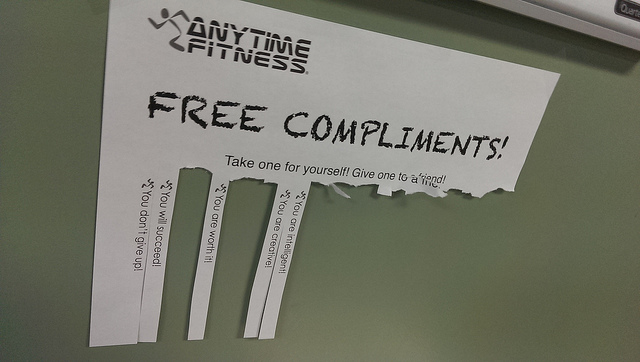Marian is an interior designer turned freelance writer who loves…
If there’s a task no one can escape, it’s writing. Regardless of what field you work in, you’re bound to put your words to paper—or to page, for that matter—whether it’s through an e-mail correspondence with your client or a written report for your boss. Though you may not give it much thought, good grammar goes a long way in boosting your professional image, while the hasty typos and grammatical slip-ups can cost you credibility points. Remember, just because you took English classes through grade school, high school, and college doesn’t necessarily mean your grammar and syntax are perfect. In fact, you might be making mistakes not out of carelessness but because you don’t know they’re mistakes in the first place!
Scroll down for ten of the most common grammar mistakes you’re likely to make and read up on reminders to help you avoid them in the future so you make a better impression on your bosses, clients, and colleagues.

1. “Its” vs. “It’s”
We often associate apostrophes with ownership, particularly when they’re followed by an S, e.g., Victoria’s Secret, but these also indicate dropped letters or numbers, as in can’t and ’90s. In this case, “its” indicates possession, while “it’s” serves as a shortened version of “it is.” The next time you hit that its/it’s conundrum, see if you can substitute it with “it is.” If so, add that apostrophe.
2. “Your” vs. “You’re”
Here’s another question of possession versus contraction, but since it doesn’t deal with that apostrophe + s combo, it’s much easier to determine when you should use one over the other. Use “your” when talking about something that the other person owns and “you’re” as a shortened version of “you are.”
3. “Their” vs. “They’re” vs. “There”
“Their” and “they’re” are the plural versions of mistake number 2, signifying possession (“their”) and contraction (“they’re” or “they are”). On the other hand, “there” usually refers to a place or position, answering the question “Where?”

4. No apostrophe, please.
Apostrophes should only be used to indicate ownership or omitted letters and numbers. These should never be added to the plural form of nouns, such as DVDs and 1990s, and most definitely not to verbs, either. To ensure that you don’t leave any unnecessary apostrophes, run a search for them by pressing Ctrl/Command + F on your keyboard.
5. “I” vs. “Me”
You probably won’t have a problem using these words on their own, but when you’re referring to yourself in addition to other people, it can get problematic. To simplify matters, try omitting the other persons involved. For example, when you remove “my teammates” from the sentence My teammates and me went out for lunch, you’re left with Me went out for lunch. That doesn’t make sense, does it? To correct your phrasing, use “My teammates and I (as subject)” instead.
6. “i.e.” vs. “e.g.”
Some think that these abbreviations can be used interchangeably, but they actually have two different meanings altogether. “I.e.” originated from the Latin phrase id est, which means “that is.” Use this to clarify your previous statement or to give further information. On the other hand, “e.g.” stemmed from exempli gratia or “for the sake of an example.” To make it easier to remember, think of “i.e.” as “in other words” and “e.g.” as “example given.”
7. “Effect” vs. “Affect”
These words are confusing, because both can act as nouns and verbs. However, for everyday purposes, keep in mind that “effect” functions as a noun that often refers to a result or influence. “Affect,” on the other hand, is most commonly used as a verb meaning to have an effect on or to pretend. Therefore, use “affect” with an “a” to signify action.

8. “Compliment(ary)” vs. “Complement(ary)”
Though their spellings are very much similar, their meanings are definitely different. Think of it this way—if you’re talking about something that makes you smile, i.e., words of praise or freebie items, use “compliment(ary)” with an “i.” If you’re using the word to mean to bring to completion or to enhance, use “complement(ary)” with an “e,” as in complete.
9. “That” vs. “Who”
Both “that” and “who” are relative pronouns that give further information, but you should use “that” when describing an object previously mentioned (e.g. The photocopier that she operates is slow) and “who” when describing a person (e.g. The woman who operates the photocopy machine is slow).
10. “Advice” vs. “Advise”
The first is a noun, while the latter is a verb. When referring to a recommendation someone gave you, use “advice” with a C, and when referring to the act of giving advice, use “advise” with an S.
Lastly, before you send that email, double-check your sentences to ensure that your subjects and verbs match. If you’re talking about multiple subjects, your verb shouldn’t have an “s” tacked on to it, as in Records shows that our sales are up by 50 percent.
It all boils down to taking the extra time to see to it that you express your thoughts in the clearest way possible.
What's Your Reaction?
Marian is an interior designer turned freelance writer who loves exploring the world on her feet and through her Kindle. Her favorite things to write about? Travel, lifestyle, coffee, and happily ever afters.
